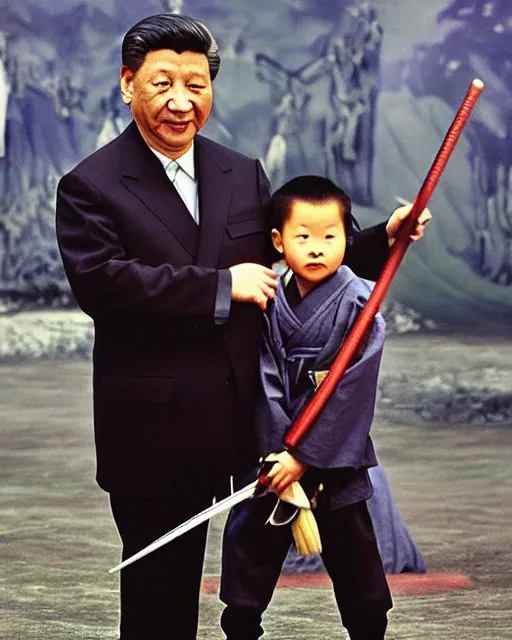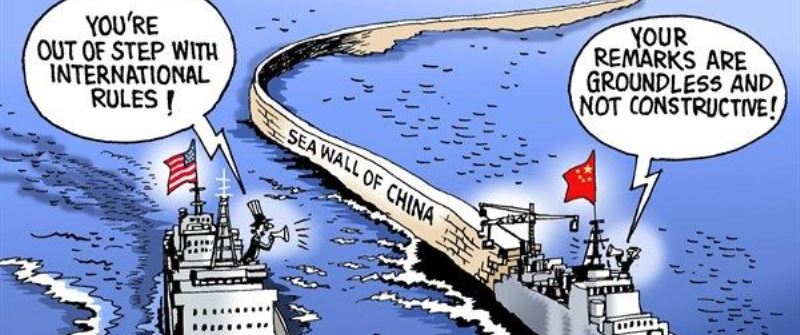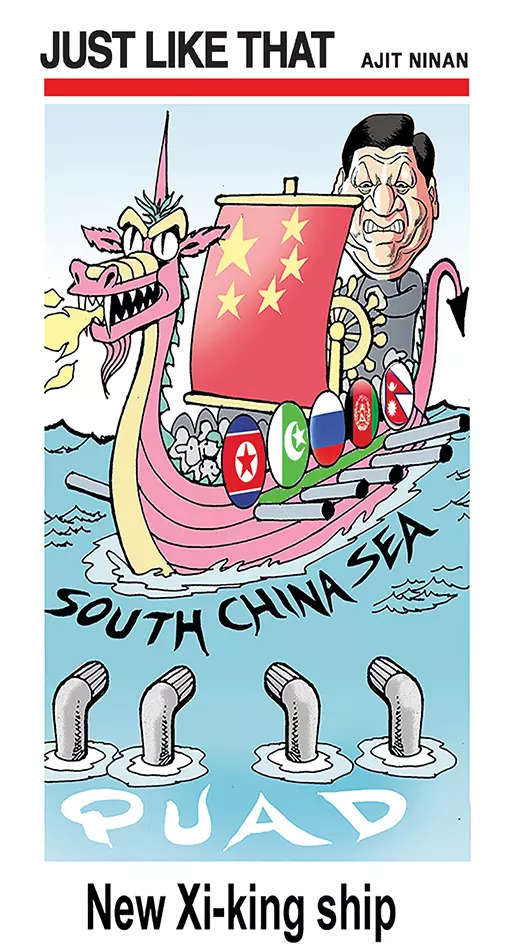Beijing must ‘Show our swords’ against rival challenges in the South China Sea
Chinese maritime expert Wu Shicun warns this year will see ‘unprecedented and disturbing’ challenges in the contested waters.
Remarks come after China’s coastguard said it ‘legally drove away’ a Philippine coastguard vessel that ‘intruded near Scarborough Shoal’.
Beijing should “show our swords when necessary” and adjust its strategy to counter challenges from rival claimants in the South China Sea, according to a leading Chinese expert.Wu Shicun, chairman of the Huayang Centre for Maritime Cooperation and Ocean Governance, said in an article on Tuesday that patience and self-control from China would not be enough.
“The history and reality of the development and evolution of the situation in the South China Sea since the turn of the century have given us an important revelation, namely, that long-term peace and stability in the South China Sea cannot be achieved only by China’s unilateral restraint and forbearance,” Wu said.
Wu’s assessment comes as tensions mount in the South China Sea, particularly between China and the Philippines over Scarborough Shoal and the Second Thomas Shoal, where the vessels from the two countries have faced off and sometimes collided.
In the latest run-in between the rival claimants, Beijing said on Monday that it drove away a Philippine coastguard vessel that it accused of “intruding” into waters near Scarborough Shoal.
In a brief statement released late Monday night, the China Coast Guard said “in accordance with the law, it drove away a Philippine coastguard vessel that had intruded into the waters adjacent to Huangyan Island, the Chinese name for Scarborough Shoal. Authorities did not say when the incident happened on Monday, or how many individuals were involved.
Authorities did not say when the incident happened on Monday, or how many individuals were involved.
Last week, Beijing said it expelled four Filipinos who “illegally intruded” in parts of Scarborough Shoal, a fishing-rich region over which China claims “indisputable sovereignty”, and has pledged to “always resolutely counter the infringing acts of the Philippine side”. Beijing’s claims soon drew a protest from Manila, with Jonathan Malaya, a spokesman at the National Security Council of the Philippines, saying China’s claim had “no legal basis under international law”, and that “only the Philippines has the authority to exercise maritime law enforcement functions to the exclusion of other countries”.
Beijing’s claims soon drew a protest from Manila, with Jonathan Malaya, a spokesman at the National Security Council of the Philippines, saying China’s claim had “no legal basis under international law”, and that “only the Philippines has the authority to exercise maritime law enforcement functions to the exclusion of other countries”.
In an opinion piece published in the Global Times on Tuesday, Wu warned against what he described as “unprecedented and disturbing” challenges in the South China Sea in the year ahead.
His prediction included Manila’s growing alignment with Washington under Philippine President Ferdinand Marcos Jnr since last year, as well as other challenges from rival claimants, including Vietnam and Malaysia, which have ramped up their presence in the disputed region.
In an apparent attempt to counter Beijing’s claims, Hanoi has significantly accelerated its reclamation work in the Spratly Islands, creating 134 hectares (330 acres) of land in 2023, according to a November report by the Asia Maritime Transparency Initiative think tank at the Washington-based Centre for Strategic and International Studies.
Since 2022, several rival claimants, including Malaysia, China and Vietnam, have pushed forward oil and gas projects in the South China Sea.
Wu said that as Beijing’s ties with Manila became “more complicated and difficult” under the Marcos administration because of his pro-US policy and the South China Sea dispute with China, it would be “unrealistic to expect” Manila to change its mind.
As friction has mounted, disputes among stakeholders in the region have been more apparent during various talks, Wu added, making it “increasingly difficult for all parties concerned to seek common ground” to push forward the code of conduct negotiations that Beijing hoped to conclude before 2026.
China should not back down but should adjust its strategy to meet the challenges, Wu said.
“We will take timely action against any stirring up of trouble that violates the commitments of the [2002] Declaration on the Conduct of Parties in the South China Sea and undermines the atmosphere of the [ongoing] consultations on the Code of Conduct in the South China Sea, and dare to show our swords when necessary,” Wu said in the article.
Scarborough Shoal – a triangle-shaped chain of reef and rocks about 120 nautical miles (138 miles) west of the Philippine island of Luzon, and 594 nautical miles from China’s Hainan Island – is at the centre of a territorial dispute between the two sides.
China took control of the area after a stand-off between Chinese and Philippine ships in 2012, an incident that prompted Manila to launch an international arbitration case over their disputes in the South China Sea.
In 2016, the Permanent Court of Arbitration in The Hague dismissed Beijing’s sweeping claims over the waterway. China did not take part in the process and rejected the ruling.
Has the South China Sea emerged as a battleground for China and its neighbours?
As part of recent de-escalate efforts, officials from China and the Philippines met in Shanghai last month with calls to “further improve maritime communication and properly manage their differences through consultation”, Chinese officials said.
However, the heightened tensions and repeated confrontations at sea have raised concerns that the volatility could escalate into a conflict that could draw in the United States, a treaty ally of the Philippines.





No comments:
Post a Comment
Note: Only a member of this blog may post a comment.